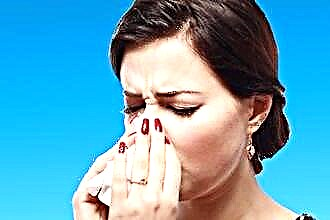Children's cough is always a concern for parents. Although in a small child, a reflex cough can be a purely physiological act that helps to clear the upper respiratory tract and has nothing to do with the disease. This cough is especially common in infants, and by about one year old it goes away. But if the baby is tormented by an obsessive cough for a long time - dry, harsh, with regular attacks, you must immediately take action.
Non-infectious causes of dry cough
 Various reasons can cause an obsessive dry cough in a child. In fact, a cough is one of the symptoms of a disease, and not always associated with the respiratory system, or a response to stimuli (external or internal). You can get rid of a cough for good by eliminating the main cause of its appearance. Temporarily - removing irritation and inflammation of the back wall of the larynx.
Various reasons can cause an obsessive dry cough in a child. In fact, a cough is one of the symptoms of a disease, and not always associated with the respiratory system, or a response to stimuli (external or internal). You can get rid of a cough for good by eliminating the main cause of its appearance. Temporarily - removing irritation and inflammation of the back wall of the larynx.
- It is usually easy to identify and remove external stimuli. These are most often pungent odors, dusty or gas-polluted air, tobacco smoke. An attack of obsessive barking cough causes too dry air in the room, especially if the child is in it for a long time - the delicate mucous membranes dry out, breathing becomes difficult and the throat is severely irritated.
- Too spicy or hot food and drinks can irritate the larynx and esophageal mucosa. The optimal temperature is 40-50 degrees, and if it is above 60, then irritation and even a burn of the mucous membrane occurs.
- It is undesirable to add vinegar, undiluted lemon juice, mustard and horseradish to baby food. With increased acidity of gastric juice, it partially enters the esophagus and also provokes a dry cough, which most often appears in the morning.
- Characterized by severe suffocating attacks for bronchial asthma, which sometimes occurs even in newborn children. They usually happen at night and are very frightening for the child. In this case, only a special inhaler or antihistamines in combination with steam inhalation will help to relieve an attack of obsessive coughing.
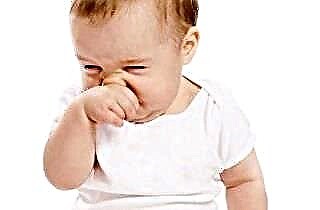 Residual cough is also quite long and intrusive. This is generally an insidious phenomenon, under which many chronic diseases are successfully disguised: bronchitis, pneumonia, tonsillitis and others. It is important to know that normally a residual cough lasts no more than a month, and in a child with strong immunity, it disappears in 1-2 weeks. If the baby continues to cough, you should consult a doctor. Most likely, you did not heal the disease or there is another hidden reason.
Residual cough is also quite long and intrusive. This is generally an insidious phenomenon, under which many chronic diseases are successfully disguised: bronchitis, pneumonia, tonsillitis and others. It is important to know that normally a residual cough lasts no more than a month, and in a child with strong immunity, it disappears in 1-2 weeks. If the baby continues to cough, you should consult a doctor. Most likely, you did not heal the disease or there is another hidden reason.- An attack of obsessive cough in the morning is often provoked by mucus flowing down the throat. This happens with chronic rhinitis, sinusitis, during colds. With a horizontal position of the body, especially if the nasal passages are blocked, accumulations of thick mucus flow down the back wall of the larynx, block the free access of air and cause a reflex cough.
- Few believe that common worms can provoke an obsessive, harsh cough, which children can get infected by playing in the sandbox or from pets if they are not regularly treated. The larvae and eggs of worms can penetrate into various internal organs: liver, lungs, intestines and, irritating them, cause a reflex cough.
Another reason for persistent obsessive coughing can be fungal infections that the child becomes infected when passing through the birth canal from the mother or through direct contact with carriers.
Only laboratory analysis of sputum will help to recognize the fungus, and the independent use of antibiotics will only accelerate its reproduction. That is why it is so important not to treat a child for some unknown reason.
Diseases: respiratory and not only
 If an obsessive, painful cough is accompanied by a sharp increase in body temperature, a runny nose, muscle pain, weakness and other symptoms characteristic of ARVI, then its cause is more or less clear.
If an obsessive, painful cough is accompanied by a sharp increase in body temperature, a runny nose, muscle pain, weakness and other symptoms characteristic of ARVI, then its cause is more or less clear.
But in many cases, these symptoms are absent, and the body temperature remains normal or rises only slightly. The more difficult it is to diagnose them and the more important is a timely visit to a doctor.
- Whooping cough. It is considered a breast disease, since it affects mainly children from six months to two years. It successfully disguises itself at an early stage as a common cold, does not give a high fever. As it develops, an obsessive dry cough appears, the attacks of which become more and more frequent. Requires compulsory drug treatment. Dangerous for the life of the child.
- Tuberculosis. Previously, it was easily detected by a test, which was done to all children in clinics and child care facilities. Now this is not practiced, and the disease, which the baby could have contracted while still in the hospital, practically does not manifest itself at an early stage. And only many months, or even years later, a slight coughing turns into a paroxysmal, hysterical cough.
- Bronchitis (acute or chronic). The cough with it can be dry or moist, sometimes with traces of blood. Typical symptoms are shortness of breath, constant shortness of breath (even without active physical exertion), nocturnal coughing fits. With stagnant sputum, purulent bronchitis can develop when thick green mucus is coughing up after an attack.
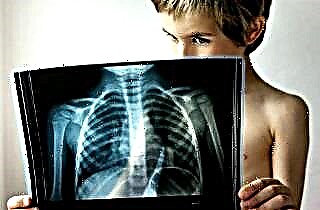 Chronic pneumonia. Pretends to be a constant obsessive cough, almost without sputum production, in which chest pain is felt. May not give high fever, sometimes a little mucus streaked with blood is coughing up. In the absence of adequate treatment, a lung abscess may develop.
Chronic pneumonia. Pretends to be a constant obsessive cough, almost without sputum production, in which chest pain is felt. May not give high fever, sometimes a little mucus streaked with blood is coughing up. In the absence of adequate treatment, a lung abscess may develop.- Reflux disease. Causes a dry cough, periodic irritation of the esophagus, into which, due to incomplete closure of the valve, the contents of the stomach enter. The child often complains of abdominal pain, sour eructations, and coughing fits more often occur after a daytime or night's sleep, when the body is in a horizontal position for a while.
- Heart cough torments children with heart defects, leading to cardiovascular failure. The body feels a lack of oxygen and reflexively tries to expand the lumen of the bronchi with a cough.
A comprehensive diagnosis, which is prescribed by a doctor, will help to pinpoint the cause of persistent obsessive cough. It usually begins with blood, urine and feces tests, and sputum tests. If necessary, a chest x-ray, bronchoscopy, spitometry and other high-tech studies are done.
Until the test results come, you can relieve attacks of severe cough using folk remedies for coughs or expectorants.
Drug treatment
 When various diseases are detected, only an experienced doctor should prescribe medication. Moreover, some diseases require long-term complex therapy under the constant supervision of specialists of the appropriate profile (otolaryngologist, oncologist, etc.).
When various diseases are detected, only an experienced doctor should prescribe medication. Moreover, some diseases require long-term complex therapy under the constant supervision of specialists of the appropriate profile (otolaryngologist, oncologist, etc.).
The schemes below are general, specific drugs and additional treatment are prescribed strictly individually:
- Antibiotics are used only if the causative agents of the disease are pathogenic microorganisms or an active inflammatory process is taking place. Usually these are macrolitics or penicillin drugs.
- Antihistamines quickly relieve allergic coughs, as well as paroxysmal coughs, accompanied by swelling and suffocation. They reduce phlegm production and have a mild sedative effect.
- Antiviral drugs give the expected result only within 72 hours from the moment the first signs of the disease appear.It is impractical to use them further, since the body has already coped with the virus that got into it, or the disease has passed into an acute stage.
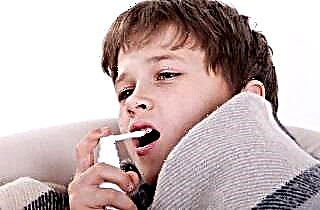 Inhalers and sprays can help quickly relieve an attack of a painful cough. Especially comfortable at night. They moisturize the mucous membrane, eliminate irritation and have an anti-inflammatory effect.
Inhalers and sprays can help quickly relieve an attack of a painful cough. Especially comfortable at night. They moisturize the mucous membrane, eliminate irritation and have an anti-inflammatory effect.- Antiparasitic drugs. They are prescribed if, according to the results of laboratory tests of feces, worms or their eggs are detected. All family members will have to drink the medicine, otherwise they will be re-infected from each other.
- Mucolytic and expectorant mixtures promote active cleansing of the lungs and bronchi from accumulations of phlegm. They are used at the stage of recovery after colds and acute respiratory viral infections and in order to soften a dry, harsh cough.
- Antitussives. Suppress the cough reflex, inhibiting the activity of the corresponding parts of the brain or reducing the mobility of the villi lining the bronchi. Simultaneous use with expectorants can lead to bronchostasis.
- Bronchodilators are used when the cough is caused by bronchospasm, which they relieve by relaxing the smooth muscles. Helps prevent attacks of bronchial asthma.
- Antifungal drugs kill fungi and their spores. Prescribed after sputum analysis for bacterial culture, not used in conjunction with antibiotics.
- Remedies for heartburn are effective for high acidity of gastric juice and reflux disease, since the cough in these cases is caused by constant irritation of the esophagus.
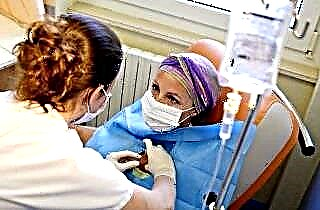 Chemotherapy is prescribed in the presence of malignant neoplasms in the respiratory system, only after a biopsy and other necessary tests, one hundred percent confirming the diagnosis.
Chemotherapy is prescribed in the presence of malignant neoplasms in the respiratory system, only after a biopsy and other necessary tests, one hundred percent confirming the diagnosis.
Often, several medications are included in the course of treatment at the same time, which allows you to influence the cause of the disease and eliminate an obsessive nasty cough as a symptom. In no case should you make independent adjustments to such treatment. This can greatly reduce its effectiveness.
Traditional methods
 The effectiveness of traditional methods of treatment for serious bronchopulmonary diseases is low. They can be used as an addition to complex drug therapy or for the treatment of colds and coughs and acute respiratory infections. You need to start with frequent gargling, which moisturizes irritated mucous membranes and relieves inflammation of the larynx.
The effectiveness of traditional methods of treatment for serious bronchopulmonary diseases is low. They can be used as an addition to complex drug therapy or for the treatment of colds and coughs and acute respiratory infections. You need to start with frequent gargling, which moisturizes irritated mucous membranes and relieves inflammation of the larynx.
Pharmaceutical cough medicines can be successfully replaced by:
- Onion juice with honey. Peel the large onion and chop it thoroughly, add a teaspoon of sugar, wait until the juice starts and squeeze well through several layers of gauze. Mix the juice with the same amount of honey and give half a teaspoon 4-5 times a day. Not recommended for children under one year old and with irritation of the esophagus.
- Lemon juice with glycerin. Well softens dry cough, quickly removes an attack, moisturizes mucous membranes, has an antibacterial effect. Pour boiling water over a large lemon, cut in half, squeeze out the juice. Strain, pour in two tablespoons of honey and one - glycerin. Stir, store in the refrigerator, give 1 tsp. 5-6 times a day.
- Carrot juice with burnt sugar. Wash a pound of carrots, peel and squeeze out the juice. Melt a glass of sugar over low heat and wait until it thickens and acquires an amber hue. Pour the strained carrot juice into the sugar syrup, cool and give the child a teaspoon 4-5 times a day.
- Beetroot juice with honey. Great for coughs caused by mucus leakage. Peel small beets, grate on a fine grater, squeeze out the juice and mix in half with honey. It is dripped into the nose, 5-6 drops in each nostril, 3-4 times a day.
- Viburnum juice. Anti-inflammatory, quickly relieves irritation, soothes sore throat. It is bitter in its pure form, it is diluted in half with warm water or weak tea, you can add a little honey. Take a tablespoon 3-4 times a day.
 Raspberry tea. Helps stop a coughing fit, bring down the temperature, remove inflammation and swelling of the mucous membranes. You can use the leaves, twigs and berries of the plant for brewing.
Raspberry tea. Helps stop a coughing fit, bring down the temperature, remove inflammation and swelling of the mucous membranes. You can use the leaves, twigs and berries of the plant for brewing.- Eggnog. Egg yolks whipped with honey are a favorite children's delicacy. It perfectly heals an irritated throat and even restores the vocal cords "shrunken" from frequent bouts of obsessive coughing. Separate the egg yolk from the protein and beat with a tablespoon of honey until white foam.
- Warm milk with baking soda and fat. Helps to relieve even the most severe barking cough. You do not need to boil it - just heat it to 70-80 degrees, add goat or badger fat (a teaspoon), and when it cools a little - a pinch of soda. Stir and give the baby a drink in small sips, preferably while lying in bed. It is not used with antibiotics, as it weakens their effect!
Other traditional methods of treatment can be used if desired. The main thing is to closely monitor the condition of the baby in order to understand how well the chosen method of treatment helps.
A noticeable relief should come on the 2-3 day, and recovery - in a maximum of a week. If this does not happen, and the child continues to cough constantly, stop experimenting with his health, it's time to go for qualified medical help.

 Residual cough is also quite long and intrusive. This is generally an insidious phenomenon, under which many chronic diseases are successfully disguised: bronchitis, pneumonia, tonsillitis and others. It is important to know that normally a residual cough lasts no more than a month, and in a child with strong immunity, it disappears in 1-2 weeks. If the baby continues to cough, you should consult a doctor. Most likely, you did not heal the disease or there is another hidden reason.
Residual cough is also quite long and intrusive. This is generally an insidious phenomenon, under which many chronic diseases are successfully disguised: bronchitis, pneumonia, tonsillitis and others. It is important to know that normally a residual cough lasts no more than a month, and in a child with strong immunity, it disappears in 1-2 weeks. If the baby continues to cough, you should consult a doctor. Most likely, you did not heal the disease or there is another hidden reason. Chronic pneumonia. Pretends to be a constant obsessive cough, almost without sputum production, in which chest pain is felt. May not give high fever, sometimes a little mucus streaked with blood is coughing up. In the absence of adequate treatment, a lung abscess may develop.
Chronic pneumonia. Pretends to be a constant obsessive cough, almost without sputum production, in which chest pain is felt. May not give high fever, sometimes a little mucus streaked with blood is coughing up. In the absence of adequate treatment, a lung abscess may develop. Inhalers and sprays can help quickly relieve an attack of a painful cough. Especially comfortable at night. They moisturize the mucous membrane, eliminate irritation and have an anti-inflammatory effect.
Inhalers and sprays can help quickly relieve an attack of a painful cough. Especially comfortable at night. They moisturize the mucous membrane, eliminate irritation and have an anti-inflammatory effect. Chemotherapy is prescribed in the presence of malignant neoplasms in the respiratory system, only after a biopsy and other necessary tests, one hundred percent confirming the diagnosis.
Chemotherapy is prescribed in the presence of malignant neoplasms in the respiratory system, only after a biopsy and other necessary tests, one hundred percent confirming the diagnosis. Raspberry tea. Helps stop a coughing fit, bring down the temperature, remove inflammation and swelling of the mucous membranes. You can use the leaves, twigs and berries of the plant for brewing.
Raspberry tea. Helps stop a coughing fit, bring down the temperature, remove inflammation and swelling of the mucous membranes. You can use the leaves, twigs and berries of the plant for brewing.
